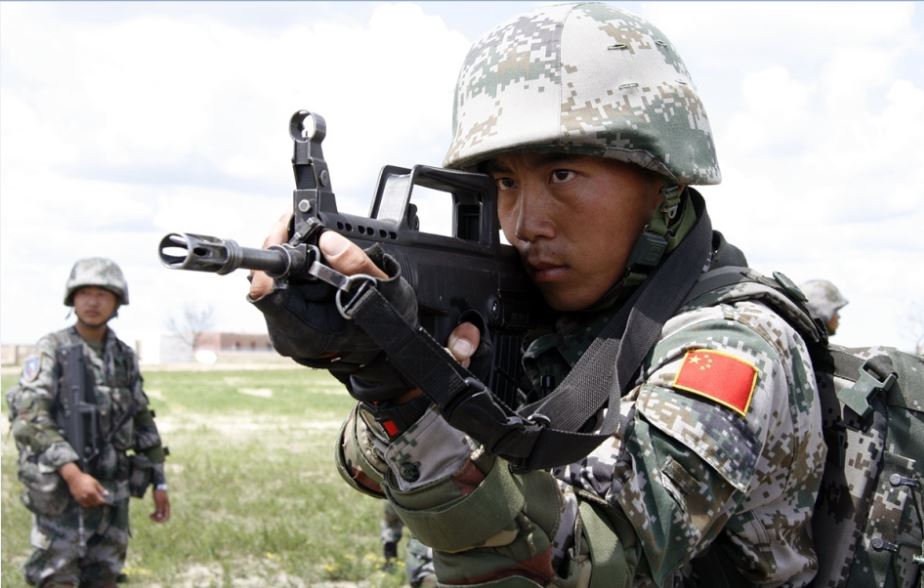
Mainstream media outlet NBC recently aired a broadcast produced by a Department of Defense-linked think tank that simulated a war between the United States and China over Taiwan.
The think tank in question is the Center for a New American Security (CNAS). It is funded by the Pentagon and by multiple corporations in the military-industrial complex, such as Northrop Grumman, Raytheon and Lockheed Martin. It also receives funding from the Taipei Economic and Cultural Representative Office, which acts as the de facto Taiwanese embassy in the United States.
CNAS was co-founded in 2007 by former Undersecretary for Defense Michele Flournoy, who served for three years during the first term of then-President Barack Obama. CNAS focuses on irregular warfare, the future of the U.S. Armed Forces and the implications of Asia becoming a global power center. (Related: US national security at significantly greater risk due to "breathtaking expansion" of Chinese nuclear arsenal.)
At one point, Flournoy was considered a strong favorite to become President Joe Biden's Defense secretary. CNAS itself is filled with "experts and alumni" who have assumed senior leadership positions within the Biden administration.
Many other CNAS fellows and senior executives have spoken openly with mainstream media outlets about war with China, and they are viewed by these outlets as authoritative sources.
Flournoy herself has written about the need for the U.S. to develop "the capability to credibly threaten to sink all of China's military vessels, submarines and merchant ships in the South China Sea within 72 hours."
CNAS CEO Richard Fontaine has gone on mainstream media outlets talking about how the war in Ukraine could be used to serve America's long-term interests against China.
China will lose many ships and aircraft, but will gain a foothold on Taiwan
The war game was conducted over the course of five hours, with a total of three rounds meant to represent several weeks' worth of combat. A summarized version of the entire simulation was broadcast on the May 15 episode of NBC's "Meet the Press."
The war game simulates a 2027 invasion of Taiwan by China. The invasion would be prompted by the Taiwanese government seeking to declare a Republic of Taiwan independent from communist China.
Beijing has from the very beginning viewed Taiwan as a "breakaway province," and has long professed a desire for the island to be reunified with the mainland. Since the 1990s, when the independence movement began, Beijing has consistently warned that it could give up peaceful attempts at reunification if Taiwan makes any irreversible moves towards full independence.
In the first stage of the simulation, the team controlling China seized Taiwan's outlying islands and preemptively attacked U.S. bases in Japan, Guam and the Mariana Islands in an attempt to slow down the inevitable American response to the invasion. This was followed up by attacks on Australian air bases and fuel depots that the U.S. Air Force regularly uses for resupply, and attacks on Hawaii and Alaska.
The second and third stages feature China landing ground troops on Taiwan and immediately being bogged down by strong resistance from allied Taiwanese and American forces.
At the end of the simulation, China had "paid a tremendous cost, primarily in ships … and aircraft, and the crews that are on those ships and aircraft," said retired Gen. James M. Holmes, former commander of Air Combat Command and now an adjunct fellow at CNAS.
However, Holmes also noted that China was still "able to get a foothold on the island," seizing a large portion of the northern region of Taiwan, including the capital of Taipei.
Holmes' main takeaway is that the logistical hurdles presented by an invasion will be very difficult for China to overcome, "even though China has lots of advantages and proximity to Taiwan."
"It's still a giant effort to get a significant force across that water in the face of determined opposition," he added, noting that, within the rules of the game, the Chinese forces were unable to achieve any of their main objectives within the short-range timeline that Beijing probably hopes for.
More stories like this can be found at WWIII.news.
Watch this episode of "Restricted Republic" about how the Chinese military may already have the capability of surrounding Taiwan.
This video is from the SecureLife channel on Brighteon.com.
More related stories:
Taiwan concerned about internet connectivity if China decides to launch an attack.
Head of U.S. Strategic Command issues dire warning about nuclear war with Russia, China.
Trump: China will DEFINITELY attack Taiwan following Russia-Ukraine example.
China says it will attack any American forces that come to the defense of Taiwan.
Sources include:
Please contact us for more information.




















